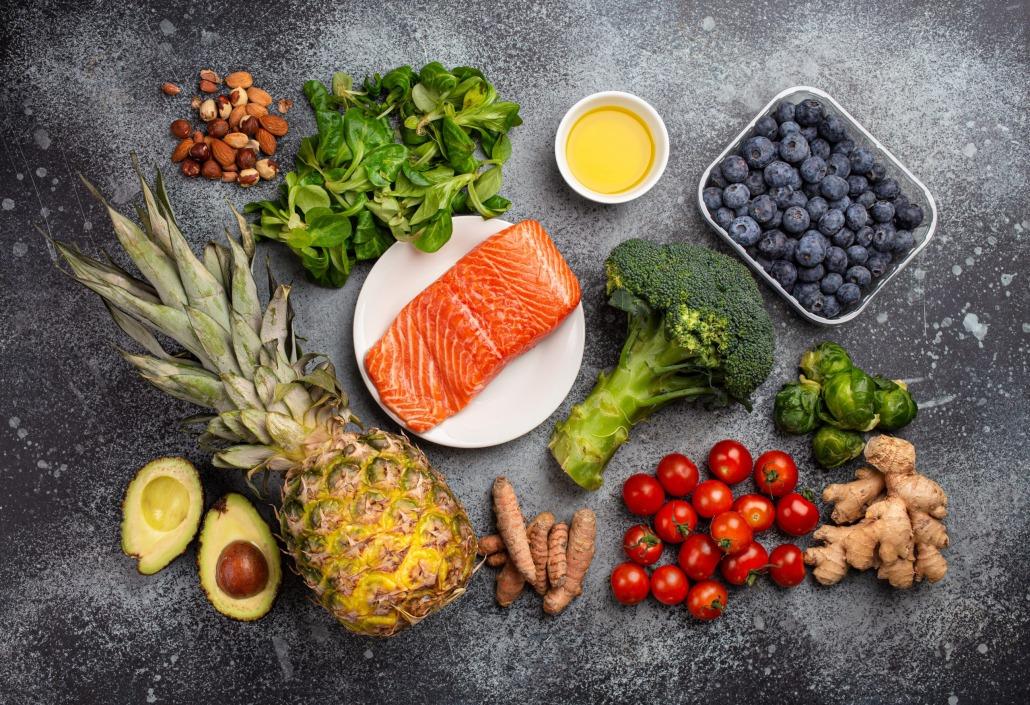
What to Eat for Joint Health and Inflammation
Support Pain Relief and Mobility Through Food
Joint pain and stiffness can significantly impact your quality of life. Whether due to arthritis, injury, or general wear and tear, chronic inflammation often lies at the root. Fortunately, what you put on your plate can either fuel the fire—or help put it out.
Nutrition plays a powerful role in reducing inflammation, easing joint discomfort, and promoting mobility. In this blog, we’ll break down the top anti-inflammatory nutrients and foods that can support joint health naturally.
Top Anti-Inflammatory Nutrients for Joint Health
1. Omega-3 Fatty Acids
These essential fats help decrease the production of inflammatory chemicals in the body.
Best sources:
Fatty fish like salmon, sardines, and mackerel
Flaxseeds and chia seeds
Walnuts
Algal oil (a vegan source)
2. Antioxidants (Vitamin C, E, and Polyphenols)
Antioxidants combat oxidative stress, which can worsen inflammation and joint damage.
Best sources:
Berries (blueberries, strawberries)
Leafy greens (spinach, kale)
Bell peppers
Green tea
Dark chocolate (70% cacao or higher)
3. Vitamin D
Low vitamin D levels are linked to increased joint pain and inflammation. It also supports bone strength.
Best sources:
Fortified foods (almond milk, cereals)
Egg yolks
Fatty fish
Sunlight exposure
4. Magnesium
Magnesium helps relax muscles and modulate inflammation.
Best sources:
Pumpkin seeds
Avocados
Legumes (black beans, chickpeas)
Whole grains like brown rice and quinoa
5. Curcumin (Turmeric’s Active Compound)
Curcumin is a potent natural anti-inflammatory that may reduce joint swelling and stiffness.
How to use:
Add turmeric to soups, stews, or smoothies
Take with black pepper to enhance absorption
Foods That Support Joint Health
✅ Eat More Of:
Colorful vegetables and fruits (rich in antioxidants)
Omega-3-rich fish (2–3 times a week)
Whole grains (instead of refined carbs)
Nuts and seeds
Olive oil (a staple in anti-inflammatory diets like the Mediterranean diet)
Herbs like ginger, turmeric, and rosemary
❌ Reduce or Avoid:
Processed foods high in sugar and trans fats
Refined carbs like white bread and pastries
Excessive red or processed meats
Soda and sweetened beverages
Alcohol in excess
Sample Anti-Inflammatory Meal Plan
Breakfast:
Oatmeal topped with blueberries, chia seeds, and walnuts
Green tea
Lunch:
Grilled salmon salad with mixed greens, avocado, and olive oil vinaigrette
Quinoa on the side
Snack:
Hummus with sliced bell peppers and cucumbers
Dinner:
Lentil stew with turmeric and ginger
Roasted Brussels sprouts and sweet potatoes
Final Thoughts
You don’t need a complete diet overhaul overnight—start by adding one or two anti-inflammatory foods to each meal. Small, consistent changes can lead to big improvements in joint comfort and mobility over time.
And remember: while diet is powerful, it's most effective when combined with movement, hydration, rest, and other supportive therapies. If you’re experiencing chronic joint pain, consider working with a naturopathic doctor or functional medicine provider to build a holistic plan that supports your body’s unique needs.
Need personalized support for joint pain or inflammation?
We’re here to help! Contact us to schedule a consultation and learn how food, supplements, and lifestyle therapies can be tailored to your health journey.

